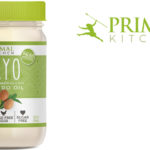Milk Thistle: Protect and Repair your Liver

(DetoxifySamurai) Milk thistle is a flowering herb native to the Mediterranean region. It has been used for thousands of years as a remedy for a variety of ailments, and historically was thought to have protective effects on the liver and improve its function. Today, its primary folk uses include liver disorders such as cirrhosis and chronic hepatitis, and gallbladder disorders. Other folk uses include lowering cholesterol levels, reducing insulin resistance in people who have both type 2 diabetes and cirrhosis, and reducing the growth of breast, cervical, and prostate cancer cells.
Silymarin, which can be extracted from the seeds (fruit) of the milk thistle plant, is believed to be the biologically active part of the herb. The seeds are used to prepare capsules, extracts, powders, and tinctures.
What the Science Says
Previous laboratory studies suggested that milk thistle may benefit the liver by protecting and promoting the growth of liver cells, fighting oxidation (a chemical process that can damage cells), and inhibiting inflammation. However, results from small clinical trials of milk thistle for liver diseases have been mixed, and two rigorously designed studies found no benefit.
- A 2012 clinical trial, cofunded by NCCIH and the National Institute of Diabetes and Digestive and Kidney Diseases, showed that two higher-than-usual doses of silymarin were no better than placebo for chronic hepatitis C in people who had not responded to standard antiviral treatment.
- The 2008 Hepatitis C Antiviral Long-Term Treatment Against Cirrhosis (HALT-C) study, sponsored by the National Institutes of Health (NIH), found that hepatitis C patients who used silymarin had fewer and milder symptoms of liver disease and somewhat better quality of life but no change in virus activity or liver inflammation.
Side Effects and Cautions
- In clinical trials, milk thistle appears to be well tolerated in recommended doses. Occasionally, people report various gastrointestinal side effects.
- Milk thistle can produce allergic reactions, which tend to be more common among people who are allergic to plants in the same family (for example, ragweed, chrysanthemum, marigold, and daisy).
- Milk thistle may lower blood sugar levels. People with diabetes or hypoglycemia, or people taking drugs or supplements that affect blood sugar levels, should use caution.
- Tell all your health care providers about any complementary health approaches you use. Give them a full picture of what you do to manage your health. This will help ensure coordinated and safe care.






